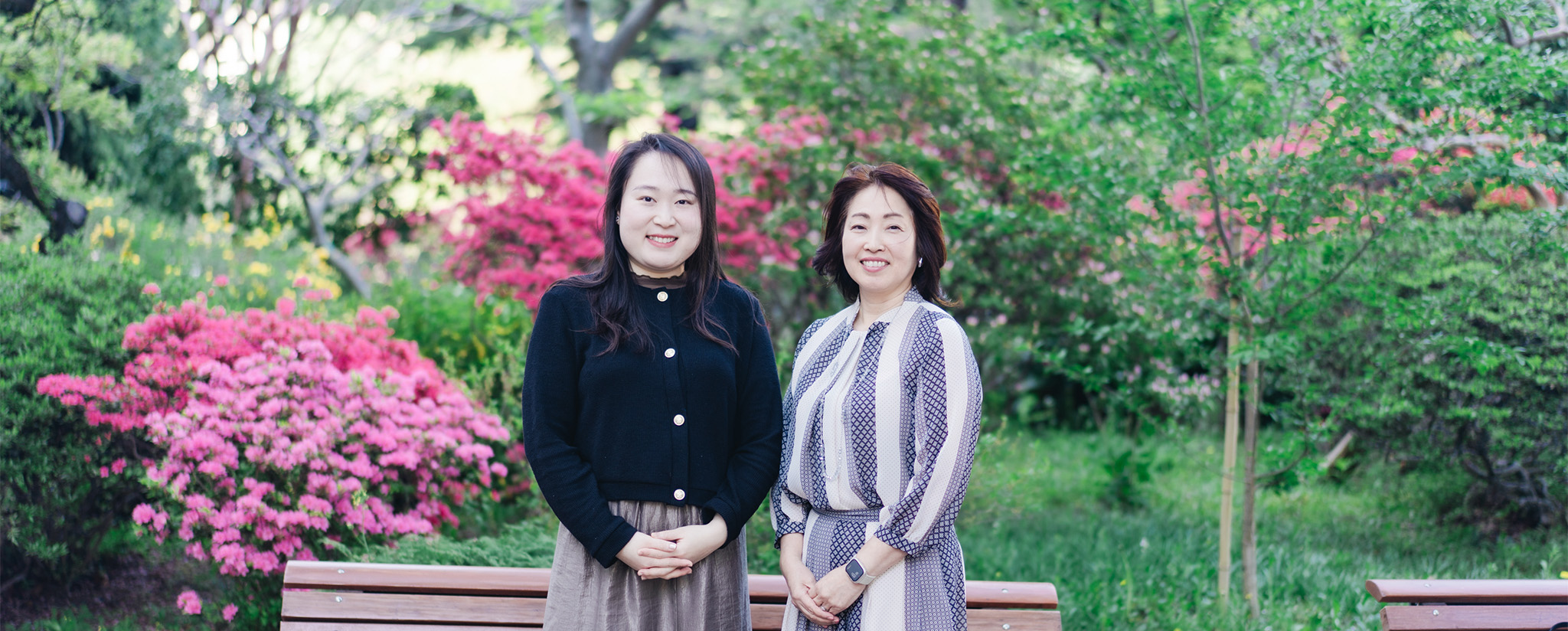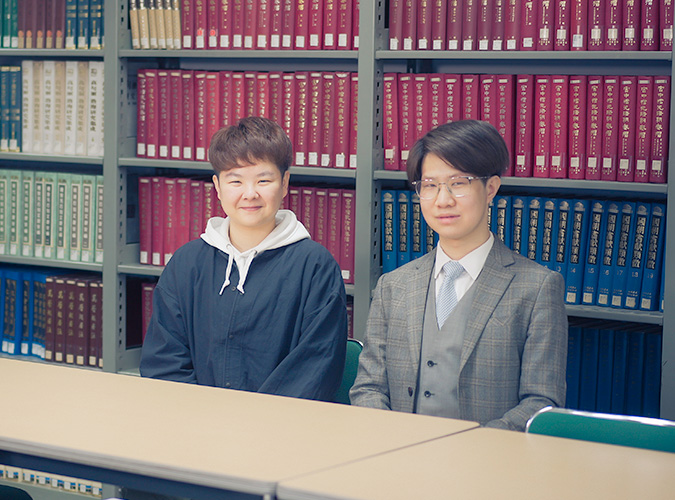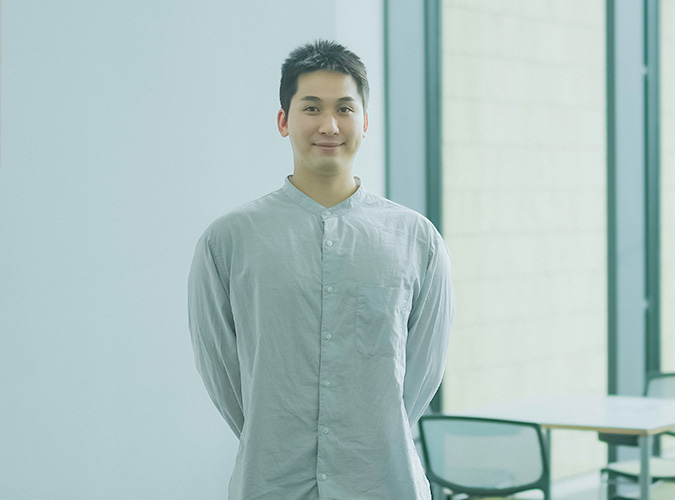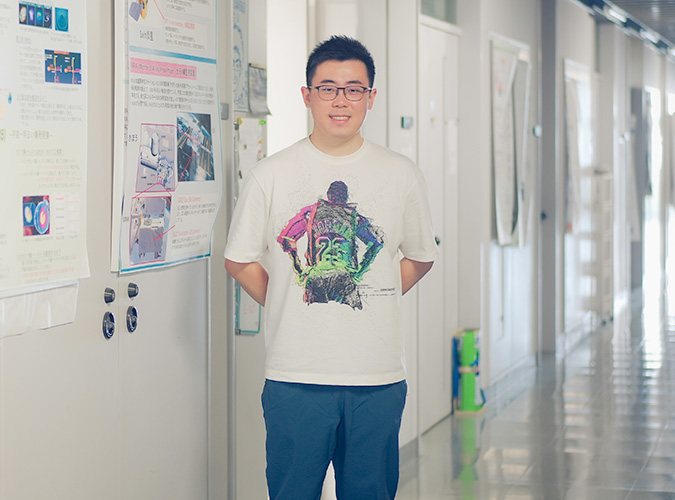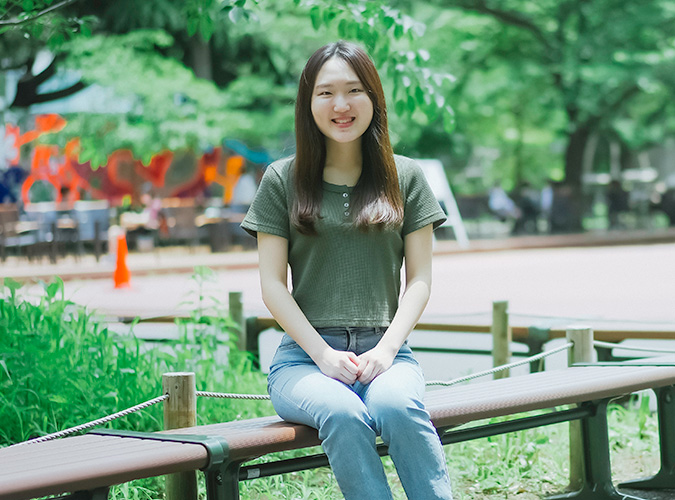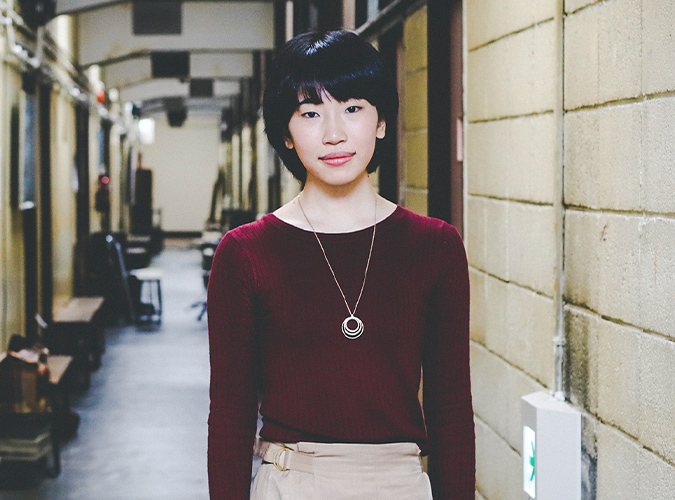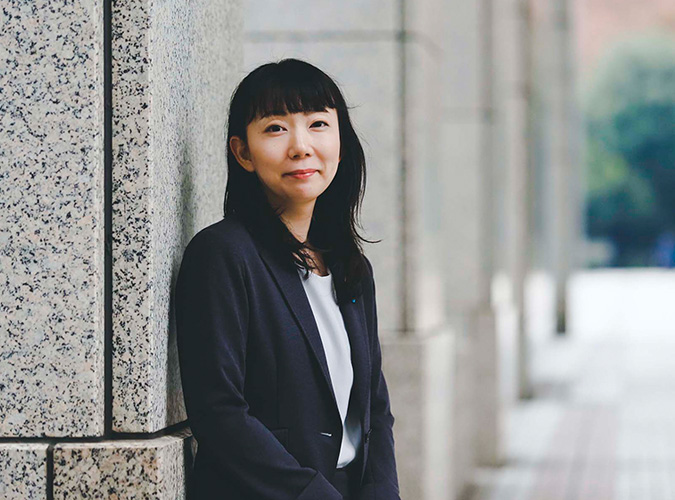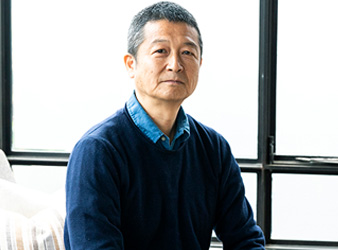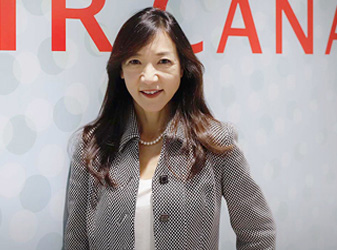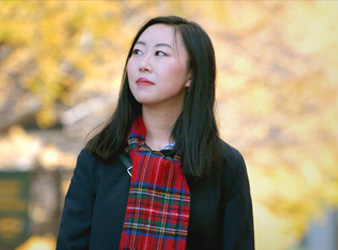Professor
Message
Professor Eriko Katsumata
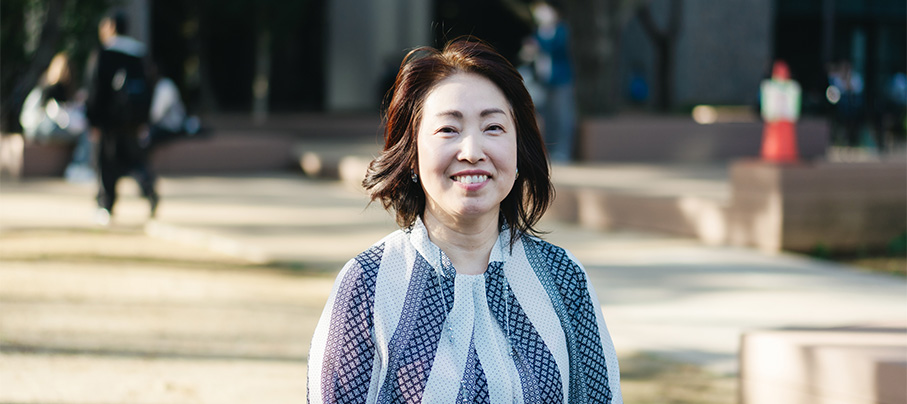
In our increasingly globalized world, intercultural communication has never been more important for success in society. Professor Eriko Katsumata’s seminar focuses on intercultural communication in multicultural societies, providing an educational experience that integrates theoretical foundations with practical learning. Within a diverse and open learning environment, students explore how people from different cultural backgrounds communicate, understand each other, and overcome barriers.
Q.What kind of research environment do you foster in your seminar?
This seminar offers hands-on learning opportunities through workshops, guest speakers, and
fieldwork. Past guest speakers have included intercultural trainers and both domestic and
international experts in the field of communication. As part of the seminar’s fieldwork activities, students
have visited the Ainu Museum in Hokkaido and the Hiroshima Peace Memorial Museum, gaining valuable
opportunities to engage directly with diverse cultures and communities.
In addition, the seminar is
conducted entirely in English, and students are required to write their graduation thesis in English as
well. I also provide opportunities for students to present their research at academic conferences on
intercultural communication, allowing them to gain practical experience that connects directly to
graduate studies and international careers. Through research and presentations in English, my goal as
a professor is to cultivate individuals who can thrive in a global society.
Q.What teaching methods do you employ to develop students’ intercultural competence?
This seminar is designed as a space for students, where the focus is not on one-way teaching but on encouraging students to take initiative in their own learning and research.
I place great importance on open dialogue among students, and over the course of the two years students and I spend together, we work to create a comfortable and trusting environment. This helps foster a sense of security and encourages students to share their honest thoughts and personal experiences freely.
I incorporate active learning methods that encourage students not to passively receive knowledge, but to think independently and engage in self-directed learning. Through group discussions, debates, and simulation games, students develop their problem-solving and communication skills. A key feature of this seminar is that students tackle questions that do not have a single correct answer, deepening their understanding by exchanging perspectives with others.
Each semester, I invite a variety of guest speakers from both Japan and abroad. This semester, I plan to welcome professors from Ukraine and Germany, who will speak about their respective cultures and communication styles. In the past, workshops were conducted by a professional coach and an intercultural trainer from France. These interactions with guest speakers provide students with real-world insights and diverse perspectives that cannot be obtained from classroom learning alone.
I also actively promote international exchange among students. In face-to-face sessions, students have participated in simulation games with visiting students from countries such as the Netherlands and Indonesia. In virtual settings, students have engaged in Collaborative Online International Learning (COIL) with students in Taiwan and Germany. COIL is an educational approach in which students collaborate with peers from universities both in Japan and overseas, engaging in shared learning experiences both during and outside of class through online platforms. By combining in-person and online opportunities, the seminar offers students practical experiences to develop a global outlook and essential skills for international collaboration.
Q.What are your expectations for students, and what career paths do they typically pursue after graduation?
Through this seminar, I aim to cultivate a proactive attitude toward learning and independent thinking, as well as curiosity about other cultures and the practical skills needed to thrive in diverse environments.
My graduates go on to work in global fields such as the airline industry and IT-related companies, with some being assigned to overseas posts just a few years after joining. What is particularly notable is that they make career choices based on their personal values. For example, one student turned down an offer from a major corporation to join a startup, drawn by the opportunity to work in an international team. Many graduates also pursue advanced degrees, both in Japan and abroad. What they all share is the ability to apply the intercultural communication skills they developed in this seminar—whether leading international projects, designing training programs in HR departments, or continuing academic research at the graduate level.
This seminar provides a practical environment where students can develop intercultural communication skills through meaningful international exchange. By engaging in real-world experiences beyond the classroom and taking ownership of their learning, students are empowered to become individuals who are trusted and respected both in the global arena and in Japanese society. If you are interested in deepening your understanding of different cultures and expanding your perspective through diverse values, I invite you to join us in this journey of learning.
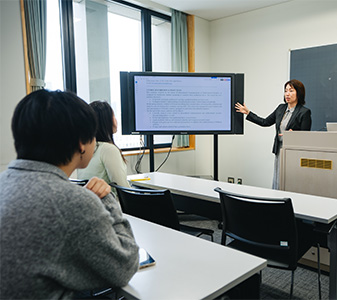

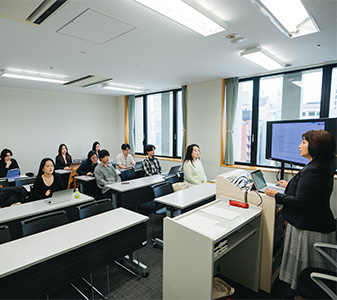
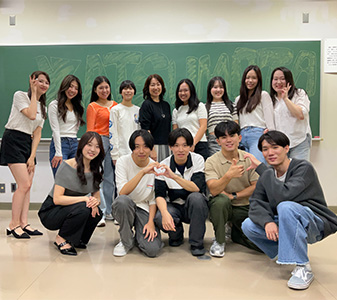
Students
Message
4th year
YANBIAN NO.2 HIGH SCHOOL, JILIN, CHINA
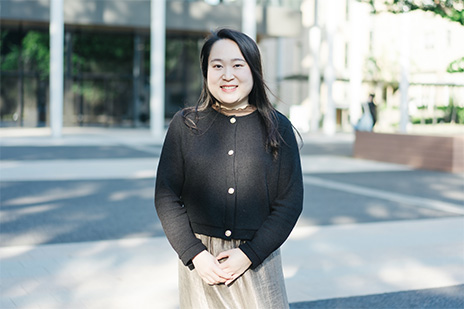
My multicultural journey began long before I joined Professor Katsumata’s seminar. Growing up in China as an ethnic minority, I spoke Korean at home while being educated in Chinese. After high school, I studied in Toronto, Canada for about three and a half years before coming to Japan. When I arrived in Japan, I wished to deepen my understanding of Japanese culture, and the School of International Politics, Economics and Communication at Aoyama Gakuin University, and especially this seminar, was the perfect environment to pursue this goal.
My research topic examines the cultural and psychological factors affecting Japanese students studying English. I’m particularly interested in how cultural elements like peer pressure and the desire for homogeneity impact language learning. For example, Japanese students who try to pronounce English words with proper intonation can sometimes be mocked by peers for sounding “un-Japanese.” Initially, I planned to compare the attitudes of Chinese and Japanese students toward learning English, drawing from my part-time work as an English teacher for Chinese students at a cram school. However, as the seminar progressed, my focus evolved while maintaining the theme of English education. I think from my own experiences learning languages in China, Canada, and Japan, I have a distinct perspective that informs my research approach.
What makes our seminar unique is its remarkably diverse atmosphere. Many members have studied or lived abroad, creating an open environment rich with different perspectives. Our day-to-day interactions offer opportunities to encounter different values and thinking styles, which broadens our horizons and fosters flexible thinking. Every discussion brings new insights, making each session fulfilling in unexpected ways. The horizontal relationship structure was also surprising to me—I don’t feel a strong hierarchy between junior and senior students or between students and Professor Katsumata.
In fact, I have received valuable advice from many senior students on research methodology, how to go deeper into my own research topic, and even other practical areas like job hunting. Through this seminar, I've grown more comfortable expressing my ideas in English and engaging critically with academic materials. As the current student leader of the seminar, I make a point to ask questions during presentations and encourage discussion to help my classmates develop their thoughts more deeply, but since most students get along well and discuss together actively, this role is not a difficult one. The skills I've gained will be invaluable for pursuing my future goals of working in an environment that connects different cultures.
After graduation, I hope to build a career that allows me to connect Japan with the rest of the world through meaningful communication. I am considering seeking work in public relations or marketing at a global company, where I’d be able to help bridge cultural gaps using my multicultural background and language skills. As for where I can make a substantial impact, I’d like to be in a position where I can help Japanese organizations better understand and engage with international clients and counterparts.
Reflecting on my time in Professor Katsumata’s seminar, what stands out most is how it has helped me grow both academically and personally. My fellow seminar classmates are very supportive, and the atmosphere is both relaxed and intellectually stimulating. For anyone interested in exploring cultural diversity and challenging themselves in an English-language research environment, this seminar is an exciting opportunity that will help to prepare you for success in our increasingly interconnected world.
School of International Politics, Economics and Communication

School of International Politics, Economics and Communication Aoyama Gakuin University’s School of International Politics, Economics and Communication was founded as a pioneer in international studies, with a mission to contribute to the global community. Students not only deepen their expertise within each department but also can integrate learning across all three for a broader, interdisciplinary perspective. The program fosters a deeper understanding of global issues and builds skills for evidence-based discussion and debate. It also cultivates practical abilities to collaborate across cultures and create new value on the global stage.
Department of International Communication
The Department of International Communication explores global issues that go beyond political and economic frameworks, offering an academic approach to understanding a rapidly changing world. Students gain insight into diverse cultures and consider how we can live together in an increasingly interconnected society. The department aims to develop graduates who can help solve global challenges through cross-cultural understanding and communication. Alumni are active in a wide range of fields, including international public relations, global cooperation projects, interpreting and translation, and media.
